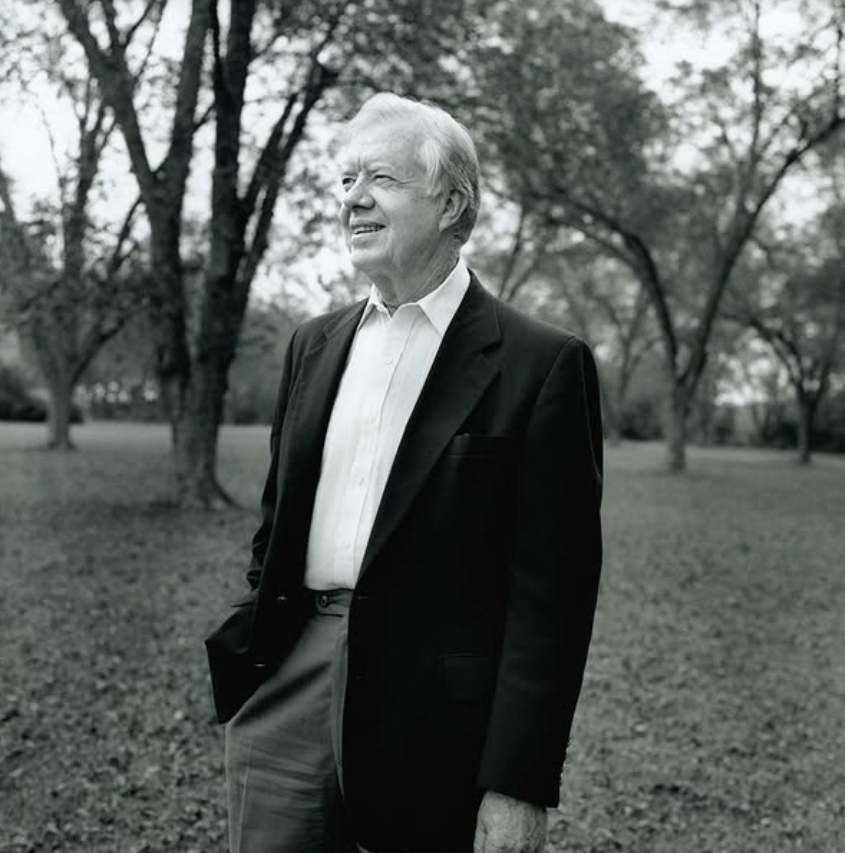Polytheism: Understanding the Meaning and Origins of Believing in Multiple Gods
In the realm of religious beliefs, polytheism stands as a fundamental concept that has shaped the belief systems of many ancient and modern societies. The word “polytheism” is derived from the Greek words “poly” meaning many, and “theism” meaning gods. In simple terms, polytheism refers to the belief in and worship of multiple gods.
This article aims to explore the meaning of polytheism, its origins, and its significance in the context of different cultures and religions. We will delve into the history of polytheistic beliefs, the various types of polytheistic religions, and the role of polytheism in shaping societies and cultures throughout history.
## The Meaning of Polytheism
### Defining Polytheism
Polytheism is the belief in the existence of multiple deities or gods. In a polytheistic belief system, each god is associated with different aspects of life, nature, or human experience. These gods may have specific powers, responsibilities, and domains over which they preside.
Polytheistic religions often involve complex hierarchies of gods, with some gods being more powerful or prominent than others. In some cases, polytheistic religions may also include goddesses, spirits, or other divine beings alongside the primary gods.
### The Difference Between Polytheism and Monotheism
Polytheism stands in contrast to monotheism, which is the belief in a single, all-powerful deity. In monotheistic religions such as Christianity, Islam, and Judaism, there is only one god who is seen as the creator and ruler of the universe.
While polytheistic religions have multiple gods with distinct attributes and functions, monotheistic religions emphasize the unity and singularity of the divine. This difference in theological outlook has significant implications for religious practices, beliefs, and worldviews.
### Common Features of Polytheistic Belief Systems
Polytheistic religions often share certain common features that distinguish them from monotheistic or other belief systems. Some of the key characteristics of polytheism include:
– **Multiplicity of Deities:** Polytheistic religions worship multiple gods, each of whom has specific powers and attributes.
– **Pantheon:** Polytheistic religions typically have a pantheon, or a group of gods, who play different roles in the cosmos.
– **Interconnectedness:** The gods in polytheistic religions may be interconnected through familial relationships, alliances, or rivalries.
– **Nature Worship:** Many polytheistic religions incorporate the worship of natural elements, forces, or phenomena, seeing them as divine manifestations.
Understanding these common features can provide valuable insights into the diversity and complexity of polytheistic belief systems and their cultural significance.
## Origins of Polytheism
### Ancient Origins of Polytheistic Beliefs
Polytheism has ancient roots that can be traced back to prehistoric times. The worship of multiple gods and spirits was a common practice among early human societies as they sought to explain the mysteries of the natural world and their place within it.
In ancient Mesopotamia, Egypt, Greece, and Rome, polytheistic religions flourished, with each culture developing its own pantheon of gods and goddesses. These deities represented various aspects of life, such as fertility, agriculture, war, and the afterlife, and were believed to influence human affairs and the natural world.
### Evolution of Polytheistic Belief Systems
Over time, polytheistic belief systems evolved and adapted to changing social, political, and cultural circumstances. As societies grew and interacted with one another, the gods and goddesses of different cultures often merged, resulting in the syncretism of religious beliefs.
For example, the spread of Hellenistic culture in the ancient world led to the fusion of Greek and Egyptian religious practices, resulting in new deities such as Serapis. Similarly, the Roman Empire incorporated deities from conquered territories into its pantheon, creating a diverse and cosmopolitan system of worship.
### Persistence of Polytheistic Traditions
Despite the rise of monotheistic religions such as Christianity, Islam, and Judaism, polytheistic beliefs have persisted in many parts of the world. Indigenous religions in Africa, Asia, the Americas, and Oceania continue to worship multiple gods and spirits, honoring the divine forces that shape their lives and environments.
Polytheism has also experienced a resurgence in modern times, with neopagan and New Age movements embracing ancient and contemporary polytheistic practices. These revivals often draw inspiration from the myths, rituals, and symbols of historic polytheistic religions, seeking to reconnect with nature, spirituality, and the divine.
## Types of Polytheistic Religions
### Classical Polytheism
Classical polytheism refers to the religious systems of ancient civilizations such as Greece, Rome, Egypt, and Mesopotamia. These polytheistic traditions were characterized by elaborate mythologies, rituals, and cult practices centered around a pantheon of gods and goddesses.
In Greek mythology, for example, the Olympian gods ruled over different domains such as Zeus, the king of the gods; Hera, the queen of the gods; Athena, the goddess of wisdom; and Apollo, the god of the sun. Each deity had a distinct personality, appearance, and role in the cosmic order, influencing human affairs and the natural world.
### Indigenous Polytheism
Indigenous polytheism encompasses the diverse and varied religious traditions of indigenous peoples around the world. These belief systems are often rooted in specific landscapes, ecosystems, and cultural practices, incorporating the worship of ancestors, spirits, and nature deities.
For example, the Ainu people of Japan revere spirits known as kamuy who inhabit the mountains, forests, and rivers of their homeland. In Africa, traditional religions such as Vodou in Haiti and Yoruba in Nigeria honor a pantheon of gods and spirits who govern different aspects of life and the cosmos.
### Neopaganism
Neopaganism is a modern revival of ancient polytheistic and nature-based religions, encompassing a diverse range of practices, beliefs, and traditions. Neopagans draw inspiration from pre-Christian European religions, classical mythology, folklore, and esoteric spirituality, creating eclectic and syncretic forms of worship.
Wicca, Druidry, Heathenry, and Hellenism are among the most prominent neopagan movements, each with its own pantheon of deities, rituals, and ethical principles. Neopagans often celebrate seasonal festivals, honor nature spirits, and practice magic and divination as part of their spiritual practice.
### Syncretic Polytheism
Syncretic polytheism refers to the fusion of different religious traditions, beliefs, and practices to create new hybrid forms of worship. Syncretism often occurs when cultures come into contact with one another, leading to the blending of deities, rituals, and symbols to create a shared religious identity.
For example, the Orisha tradition in Cuba combines elements of Yoruba religion from West Africa with Catholicism, resulting in a unique syncretic form of worship. Similarly, the Hindu pantheon incorporates deities from diverse regional traditions, reflecting the pluralistic and adaptive nature of polytheistic beliefs.
## Significance of Polytheism
### Cultural Diversity and Pluralism
Polytheism reflects the cultural diversity and pluralism of human societies, allowing for a multiplicity of beliefs, practices, and worldviews to coexist. By honoring multiple gods and spirits, polytheistic religions acknowledge the complexity and interconnectedness of the natural world and human experience.
Polytheism also fosters a sense of inclusivity, tolerance, and acceptance of different religious traditions and perspectives. In polytheistic societies, individuals may worship different gods, observe diverse rituals, and participate in varied spiritual practices, creating a rich tapestry of beliefs and expressions of faith.
### Connection to Nature and Mythology
Polytheism often emphasizes the connection between humans, nature, and the divine, portraying the gods and goddesses as embodiments of natural forces and phenomena. Many polytheistic traditions celebrate the changing seasons, cycles of life and death, and the elemental powers of earth, air, fire, and water.
Mythology plays a central role in polytheistic religions, providing a narrative framework for understanding the origins of the cosmos, the actions of gods and heroes, and the meaning of human existence. Myths serve as symbols, allegories, and explanations for the mysteries of life, inspiring art, literature, and ritual practices.
### Ethical and Moral Guidance
Polytheistic religions often provide ethical and moral guidance to their followers, offering principles for living a virtuous and harmonious life. The gods and goddesses serve as moral exemplars, embodying virtues such as courage, wisdom, justice, and compassion that believers strive to emulate in their own lives.
Many polytheistic traditions also emphasize the importance of reciprocity, stewardship, and respect for the natural world and its inhabitants. Through rituals, offerings, and prayers, worshippers seek to maintain a harmonious relationship with the divine, the ancestors, and the spirits who dwell in the land.
## Polytheism Across Cultures
### Ancient Egyptian Religion
Ancient Egyptian religion is one of the oldest and most enduring polytheistic traditions in history. The Egyptians worshipped a pantheon of gods and goddesses who governed different aspects of life, death, and the afterlife. Key deities included Ra, the sun god; Isis, the goddess of magic; Osiris, the god of the underworld; and Horus, the sky god.
The Egyptians believed in the concept of Ma’at, or cosmic order, which emphasized truth, balance, and justice in the world. Through rituals, offerings, and prayers, worshippers sought to maintain Ma’at and ensure the prosperity and well-being of their society.
### Greco-Roman Mythology
Greco-Roman mythology is a rich and complex tapestry of gods, heroes, and monsters that shaped the cultural and religious beliefs of ancient Greece and Rome. The Olympian gods, such as Zeus, Athena, Apollo, and Aphrodite, ruled over the cosmos, intervening in human affairs and engaging in divine dramas and conflicts.
The myths of Greco-Roman mythology provided explanations for natural phenomena, the origins of the gods, and the heroic exploits of mortals and immortals. These stories served as moral lessons, warnings, and sources of inspiration for the ancient Greeks and Romans, influencing art, literature, and philosophy for centuries.
### Norse Mythology
Norse mythology is the polytheistic belief system of the pre-Christian Germanic peoples of Scandinavia, Iceland, and the Germanic tribes. The Norse gods and goddesses, such as Odin, Thor, Freyja, and Loki, were revered for their strength, courage, and wisdom, embodying the values of the warrior culture and the natural world.
The Vikings and their descendants honored the Aesir and Vanir gods through rituals, sacrifices, and storytelling, seeking protection, guidance, and favor in battle and everyday life. Norse mythology influenced the literary and cultural traditions of Scandinavia, inspiring sagas, poems, and artwork that continue to captivate audiences to this day.
### Hindu Pantheon
Hinduism is a diverse and multifaceted religion that encompasses a rich tapestry of deities, myths, and philosophical teachings. The Hindu pantheon includes millions of gods and goddesses, each representing different aspects of the divine, the cosmos, and human experience.
Key deities in Hindu mythology include Brahma, the creator god; Vishnu, the preserver god; and Shiva, the destroyer god. These gods are revered in temples, rituals, and festivals throughout India and the Hindu diaspora, guiding devotees on their spiritual journey towards liberation and enlightenment.
## Conclusion
In conclusion, polytheism is a complex and diverse religious phenomenon that has shaped the beliefs, practices, and cultures of societies around the world. From the ancient civilizations of Egypt, Greece, and Rome to the indigenous traditions of Africa, Asia, and the Americas, polytheistic religions have offered a multiplicity of gods, myths, and rituals that reflect the richness and complexity of human spirituality.
As we have seen, polytheism provides a unique lens through which to explore the connections between humans, nature, and the divine, offering insights into the ethical, moral, and symbolic dimensions of religious experience. By understanding the meaning, origins, and significance of polytheism, we can gain a deeper appreciation for the diversity and depth of human religious expression and the enduring legacy of polytheistic beliefs in our world today.


